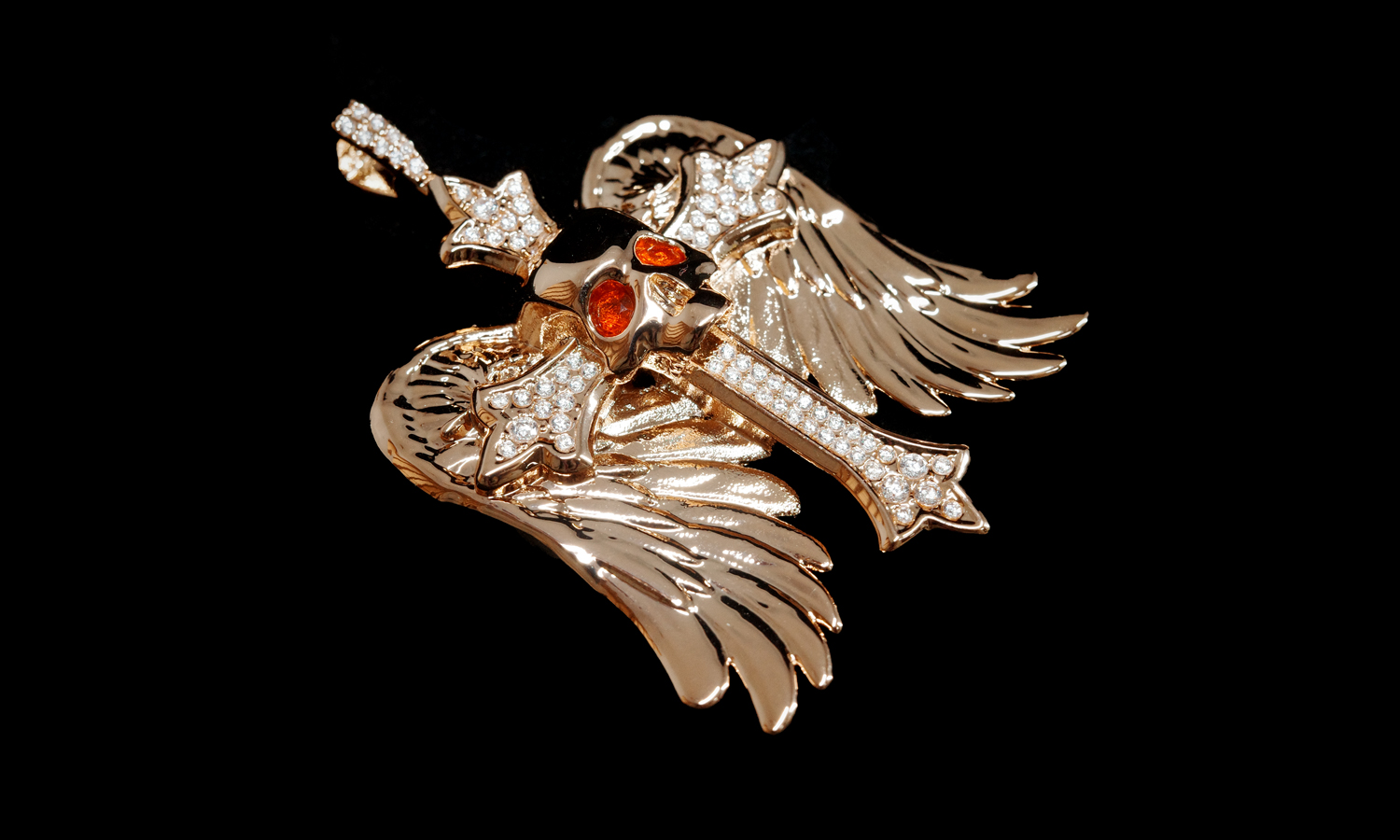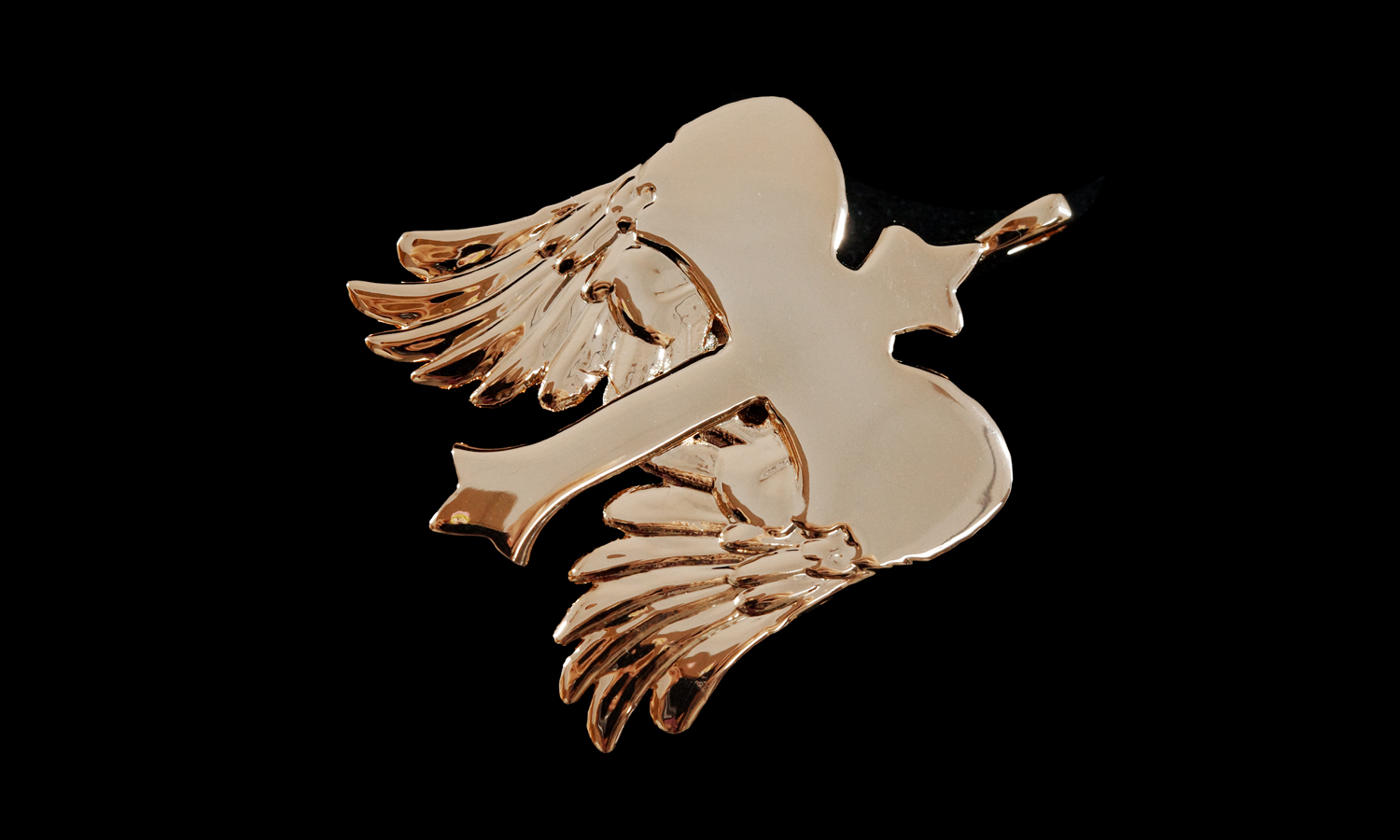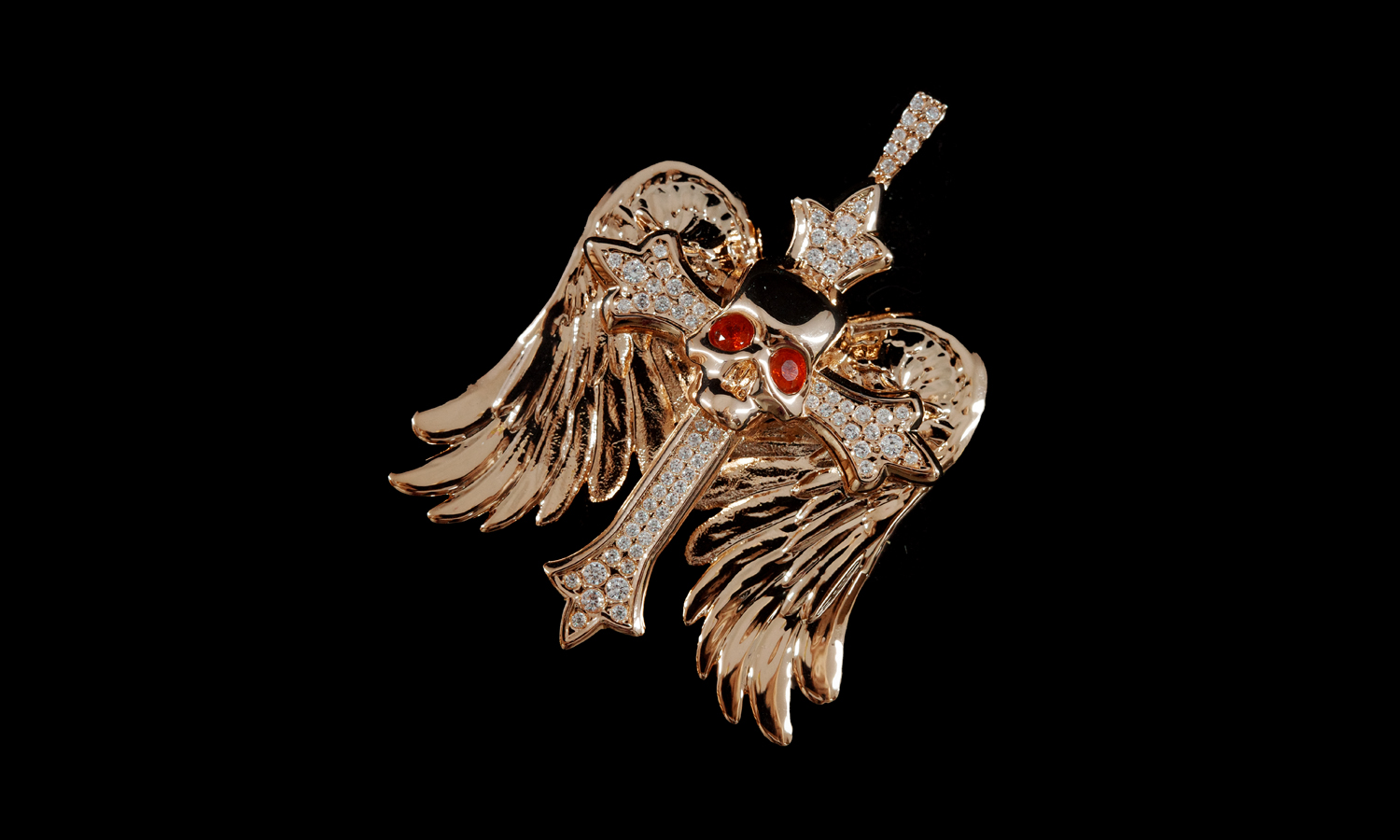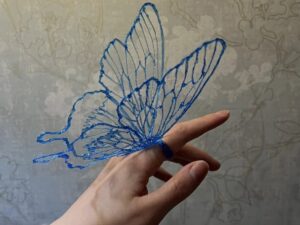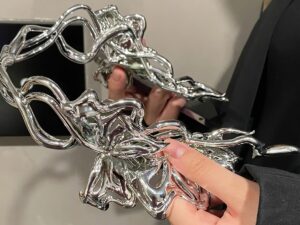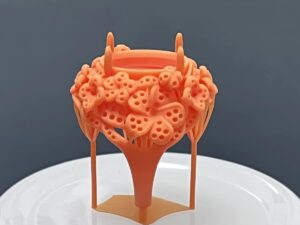- DMLS 3D Printed Titanium Sample with Geometric Design
- Silver Angel of Death Necklace Pendant Cast from 3D Printed Pattern
Material Resin, Metal
Quantity 5 pcs
Price Range $100-1,000
Lead Time 7 workdays
Gallery
About Project
If you love the silver Angel of Death necklace pendant, but prefer a warmer and more romantic tone, you might want to check out the rose gold Angel of Death necklace pendant, a variation of the original design that features a beautiful rose gold plating.
The pendant has the same shape and details as the silver version, with a cross lying on a pair of wings, and a skull in the center of the cross. The wings are outstretched and feathered, representing freedom and protection. The skull is realistic and has deep eye sockets, inlaid with red diamonds that add a touch of mystery and glamour. The bail is attached to the top of the cross, and clear diamonds are inlaid on the cross and the bail, creating a contrast and balance with the rose gold.
The pendant is made of sterling silver, which is durable and hypoallergenic. The silver is then plated with a thin layer of rose gold, which is a gold alloy that contains copper, zinc and silver. The copper gives the rose gold its distinctive pink hue, while the silver and zinc enhances its brightness and luster.┬ĀThe rose gold plating is done using an electrochemical process, which involves immersing the pendant in a solution of metal salts, including rose gold, and applying an electric current to bond the rose gold to the silver surface.
The rose gold plating is not only aesthetically pleasing, but also protective and durable. It prevents the silver from tarnishing and oxidizing, and adds a layer of resistance to scratches and wear. The rose gold plating also complements the diamonds and gemstones, making them stand out and sparkle more.
The pendant is cast from a 3D printed pattern, which ensures accuracy and precision. The 3D printing process also allows for customization and personalization, so you can choose the size, shape, color, and style of your pendant. You can also add your own engraving or inscription to make it more meaningful and special.
The pendant is customed by CGIChains and produced by FacFox, a leading company in 3D printing and manufacturing services. FacFox can help you create your own creative jewelry, whether you want to make one for yourself or for your loved ones. FacFox offers high-quality products, fast delivery, and affordable prices. You can order your pendant online and get it delivered to your doorstep in no time.
Solution
- Step 1: A 3D model of the pendant was created by CGIChains and converted into a 3D printable file format, such as STL or OBJ. The file was then uploaded to facfox.com, where the customer could review and confirm the order details, such as the quantity, material, and delivery address.
- Step 2: The 3D printable file was sent to a 3D printer, which printed the pendant using SLA Formlabs Castable Wax. The 3D printer used a process called stereolithography (SLA), which cured the resin layer by layer with a UV laser beam. The 3D printing process took about an hour to complete, depending on the complexity and size of the pendant.
- Step 3: After the 3D printing process was finished, the pendant was removed from the 3D printer and cleaned with alcohol to remove any excess resin. The pendant was then cured in a UV oven to harden the resin and improve its strength and durability. The pendant was also inspected for any flaws or defects that might have occurred during the 3D printing process.
- Step 4: Next, the pendant was cast in a metal mold using a lost-wax casting technique. The pendant was placed in a metal flask and surrounded by a plaster-like material called investment. The flask was then heated in a kiln to melt the resin and create a hollow cavity in the shape of the pendant. Molten silver was then poured into the cavity and allowed to cool and solidify. The flask was then broken and the silver pendant was retrieved from the investment.
- Step 5: After the casting process was completed, the pendant was polished and finished using various tools and techniques. The pendant was sanded, buffed, and filed to remove any rough edges or imperfections. The pendant was then plated with a thin layer of rose gold, which was a gold alloy that contained copper, zinc and silver. The rose gold plating was done using an electrochemical process, which involved immersing the pendant in a solution of metal salts, including rose gold, and applying an electric current to bond the rose gold to the silver surface. The rose gold plating was not only aesthetically pleasing, but also protective and durable. It prevented the silver from tarnishing and oxidizing, and added a layer of resistance to scratches and wear. The rose gold plating also complemented the diamonds and gemstones, making them stand out and sparkle more.
